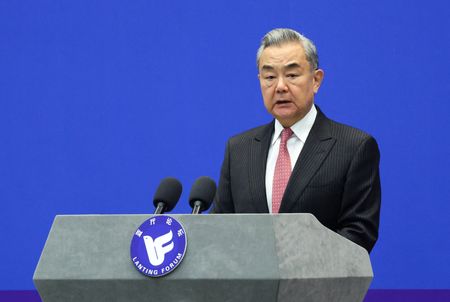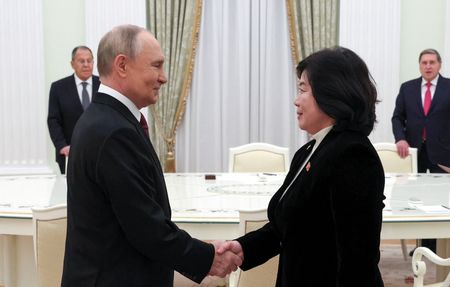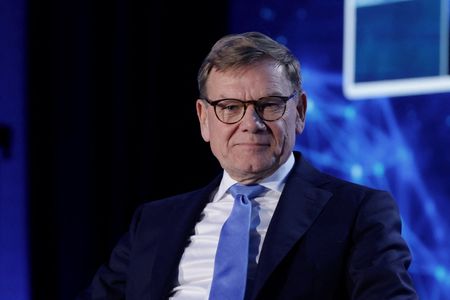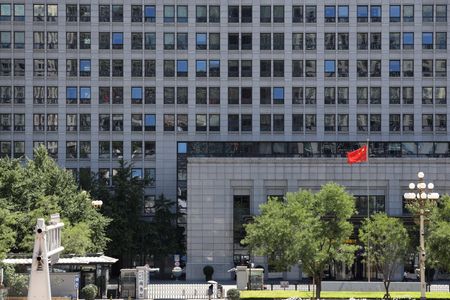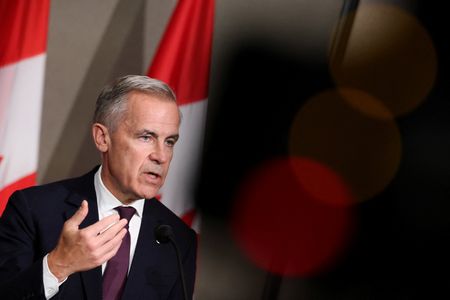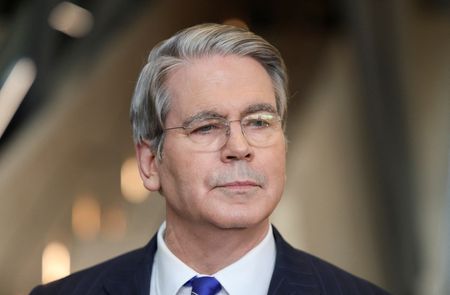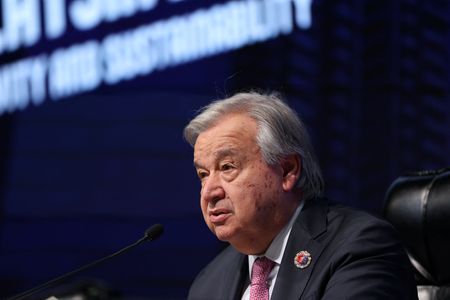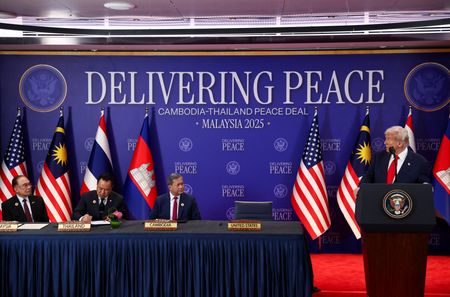BEIJING (Reuters) -China hopes the United States can meet it halfway to “prepare for high-level interactions” between the two countries, foreign minister Wang Yi told U.S. Secretary of State Marco Rubio in a phone call on Monday, China’s foreign ministry said.
Chinese President Xi Jinping and U.S. President Donald Trump have “long-standing exchanges and respect each other”, Wang said, calling Xi and Trump’s relationship “the most valuable strategic asset in China-U.S. relations,” according to the ministry.
The call came ahead of an expected meeting between Xi and Trump in South Korea on Thursday on the sidelines of the Asia-Pacific Economic Cooperation CEO Summit.
The Chinese readout of Monday’s call stopped short of directly confirming the two would meet, but the White House has previously said they will.
The U.S. State Department said in a short statement that Rubio and Wang discussed the “importance of the U.S.-China relationship and the upcoming meeting” between the countries’ leaders, without providing details.
Negotiators from the two countries met in Malaysia at the weekend to hash out a framework trade deal for the presidents to consider, on issues including soybeans and TikTok.
There has been a new flare-up of trade friction between the world’s two largest economies in recent weeks after a period of relative calm, with Beijing expanding its rare earths control and Washington pressing through with additional port fees on Chinese ships, sparking a wave of mutual countermeasures.
“China-U.S. trade and economic relations (have) experienced some twists and turns,” Wang said, according to the Chinese ministry’s statement.
“The two sides clarified their positions and enhanced understanding” during the trade talks in Kuala Lumpur, he said.
Bilateral relations can move forward as long as both sides are “committed to resolving conflicts through dialogue and abandon the practice of exerting pressure at will,” Wang said.
Trump, en route to Japan on Monday, said the U.S. and China are set to “come away with” a trade deal.
Late on Sunday, Chinese state media flagged the contentious issue of Taiwan, the most serious potential security flashpoint between Washington and Beijing, saying that a group of Chinese H-6K bombers recently flew near Taiwan to practice “confrontation drills.”
Rubio said on Sunday that Taiwan should not be concerned about the U.S.-China talks, despite some experts expressing concerns that Trump might offer concessions over the island, which Beijing claims as its own and which under U.S. law Washington is required to provide with the means to defend itself.
Craig Singleton, a China expert at the Foundation for Defense of Democracies think tank in Washington, said any U.S. trade deal with Beijing would likely mean only a short-term stabilization in ties between the countries.
“Both sides are managing volatility, calibrating just enough cooperation to avert crisis while the deeper rivalry endures,” Singleton said.
(Reporting by Xiuhao Chen, Ryan Woo, Michael Martina and David Brunnstrom; Editing by Toby Chopra, Hugh Lawson and Daniel Wallis)

